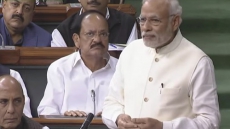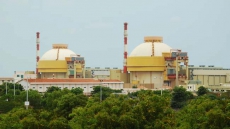Agra, a city that is home to three world heritage monuments, including Taj Mahal, is caught in a dilemma between development and conservation.
The tourism industry wants old structures preserved to attract tourists, but the public demand for better civic amenities call for mass demolition.
To develop you have to demolish, but heritage conservation requires maintaining the status quo. When every corner of the city has a monument or two, raising its tourism potential, carving out of open spaces for modern projects is neither easy nor permissible under the stringent provisions of the Ancient Monuments Protection Act.
The state government has announced plan to introduce Metro rail to facilitate mobility within the city. "When the work will start after extensive surveys of two corridors, we expect large-scale demolition in the old city," said Surendra Sharma, President of the Braj Mandal Heritage Conservation Society.
"Whether the departments concerned will allow or give no-objection certificate for the project, and what measures would be taken to keep the dust level, already touching alarming level, from rising further remains to be seen," he said.
The ecological fears are real as thousands of trees could be chopped for the project. They are planning the Metro rail depot at the PAC ground, dangerously close to Taj Mahal, says Shravan Kumar Singh, an activist.
So much environment conservation work is claimed to have been done in the past three decades due to lawyer M.C. Mehta's activism, but the results are not visible. The ground reality paints a dismal picture as both nature and people conspire to hasten the process of decadence in this premier Mughal metropolis.
River Yamuna is too sick with toxic pollutants and is virtually dead. The air quality continues to remain alarming as an increasing number of vehicles spit noxious gases, fumes and harmful emissions. The suspended particulate matter in the ambient air remains higher than the standard for the eco-sensitive Taj Trapezium Zone, spread over 10,400 sq km. The green cover in the district has come down to a pathetic 6.71 per cent. Compare this with Delhi's 35 per cent and Chandigarh's 45 per cent.
Of the 400 odd community ponds, only a few survive. The irrigation network, an extensive canal system that the British left behind, is mostly encroached upon. The six tributaries of Yamuna in the district remain choked with garbage and sludge round the year.
Over the years, the cumulative impact of various measures initiated has been neutralised by massive construction, concretisation, denudation, urbanisation and substantial increase in the number of vehicles.
Additionally, the Yamuna Expressway and the Agra Lucknow Expressway has resulted in reduction of the green cover and increased road traffic.
City planners are confused whether Agra has to be conserved as a heritage city or to graduate it to a higher level as a smart city.
Many people have suggested that the central government work out some institutional arrangement to prevent conflicting perspectives and action plans.
At present, there is the Mission Management Board, the Taj Trapezium Zone Authority, the central and state pollution control boards, the municipal corporation, the district board and the Agra Development Authority, each with its own set of priorities and levels of accountability. Though no one can claim a clear vision for the city, a hastily compiled voluminous document -- the Agra Heritage Vision -- has been submitted to the Supreme Court and is likely to be adopted soon.


